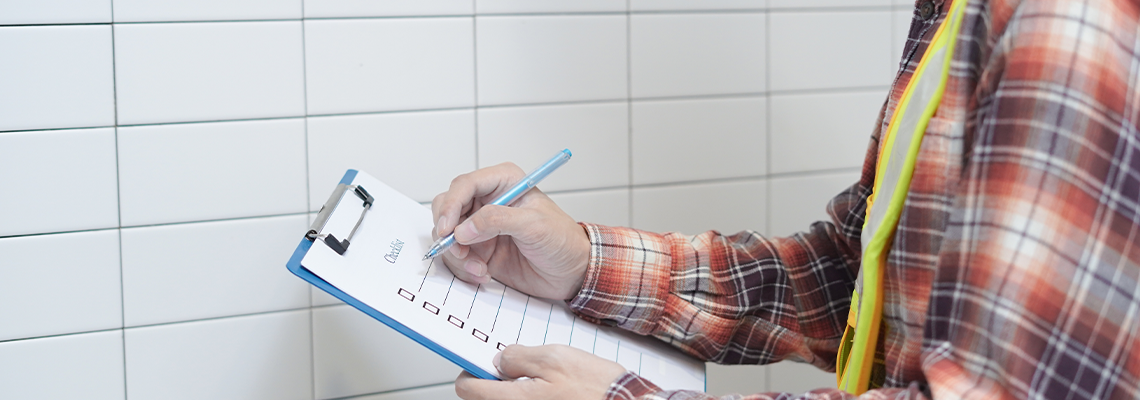
The Importance of Home Inspections
Can you imagine if you bought a home without inspecting the roof only to find out later that it needs replacing? Or moving into a house with a hidden mold problem that leads to health issues for you and your family? These are just some of the scenarios that highlight the importance of home inspections.
Understanding Home Inspections
A home inspection is a thorough examination of a property's condition, performed by a certified inspector. This process involves a meticulous review of the house's structure, systems, and components, such as the roofing, plumbing, electrical work, heating and cooling systems, and appliances.
The inspector's role is to identify any issues or potential concerns that could affect the value of the home or lead to significant expenses for the new homeowner.
The process typically unfolds as follows:
The buyer makes an offer on a home contingent upon the results of a home inspection.
A certified home inspector is hired to conduct the inspection within a specified time frame.
The inspector carries out an on-site evaluation, taking note of any defects or areas in need of repair.
Upon completion, the inspector compiles a detailed report that covers the findings.
Home inspections are critical to the home-buying process because they provide an objective assessment of a home's condition, revealing problems that may not be visible to the untrained eye. This information is invaluable for buyers, as it equips them with the knowledge to negotiate repairs or better pricing, avoid costly mistakes, and gain peace of mind about their potential investment.
Even if you are purchasing a property "As-Is" a home inspection is beneficial and something we recommend. You still want to know what you are getting into, and while the property may be sold "as-is", that does not mean you need to accept it as it is. An as-is contract should still have an inspection contingency, so that if you are not ok with the condition of the property as it is, you can walk away without losing earnest money.
Home Inspections Benefit Both Buyers and Sellers
For sellers, a pre-listing home inspection can help them understand the condition of their property, make necessary repairs before the sale, and accurately price their home. This leads to improved buyer confidence and enhances the value of the home.
Buyers, on the other hand, get to join the inspector on the tour, understand what needs attention, and receive a complete report of findings. This information can be used to request necessary repairs or concessions from the seller and even opt out of the purchase if significant issues are discovered.
By identifying potential issues before finalizing a contract, inspections help predict future expenses, such as replacing the roof or water heater. It's about peace of mind, knowing that your investment is sound.
Major Areas That Are Usually Inspected
A typical home inspection covers many areas so that people can make informed decisions about the property. These include, but are not limited to:
Downspouts and rain gutters
Roof
Ceilings
Walls
Floors
Attic space
Garage
Basement
House foundation
Windows
Doors
Ventilation
Cooling and heating system
Water heater
Faucets
Plumbing fixtures
Power outlets
Light switches
Electrical panel
If a concern is found, the inspector will make recommendations for further evaluation by a specialist or contractor to identify any needed repairs. This can factor into purchasing negotiations, and the buyer can decide whether or not to proceed with the transaction.
Areas That Are Typically Not Inspected
While home inspections cover many areas, there are some that fall outside the scope of this process. These include:
EIFS, short for Exterior Insulation and Finish Systems, is a synthetic stucco used for exteriors. Proper installation is crucial to avoid issues. If EIFS is directly attached with no drainage, water infiltration is likely, especially in high moisture conditions, leading to substrate damage.
For homes built before 1978, consider a lead-based paint inspection or risk assessment. If lead is found, a risk assessor can advise on abatement or maintenance.
Mold inspection involves a questionnaire, visual inspection, and testing. Prices range from $300 to $3,000 depending on property size and sample quantity.
Radon, a cancer-causing gas, can enter homes through cracks or near outlets/pipes. Radon testing is recommended to assess risk. Mitigation is needed if levels exceed 4 pCi/L. A radon test can be requested of Sellers but would be done separately from the property inspection.
To assess the condition of a roof, hire a roofing company for an inspection and certification. Reports cover movement, materials, drains, and gutters. Certification is valid for 2-5 years.
For homes older than 20 years, a sewer inspection is advisable. Contractors can use a camera to examine the condition and detect clogs. Fees range from $85-$300.
How a Lawyer Can Help With Your Transaction
This is where we come in. As your legal team, we can provide guidance and assistance throughout the home inspection process. We review the inspection report, identify any legal issues or concerns, and advise on potential negotiation strategies.
If there are significant issues discovered during the inspection, we're here to protect your interests by negotiating repairs or concessions with the seller. In the event of any legal disputes or issues related to the home inspection, our real estate attorneys can provide representation and ensure your rights are protected.
In conclusion, home inspections are an essential part of the home-buying process. At Alexander | Grossman Attorneys at Law, we're here to guide you every step of the way. Reach out to our firm in Skokie, Illinois, today for more information or assistance.

